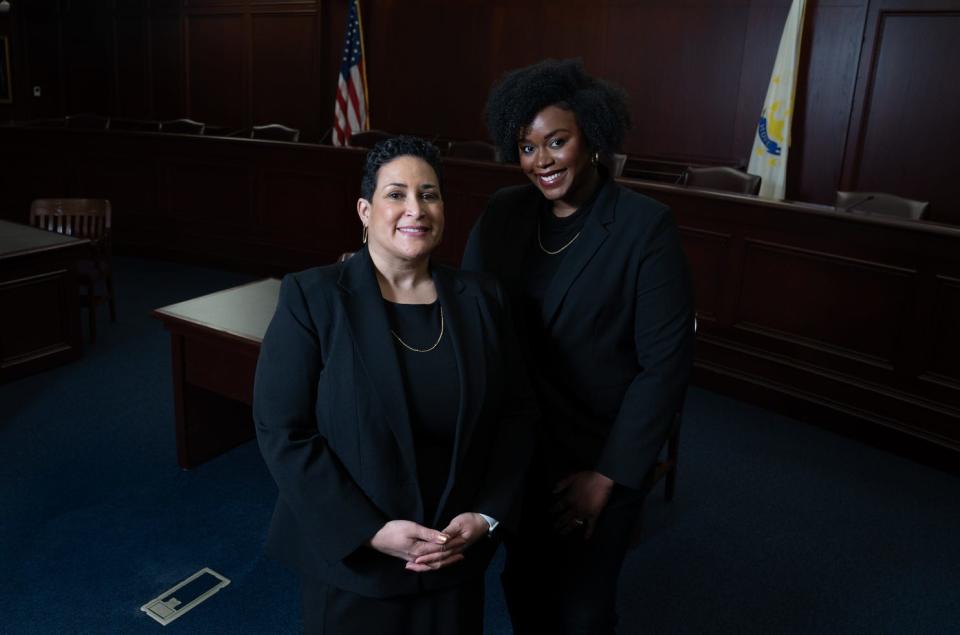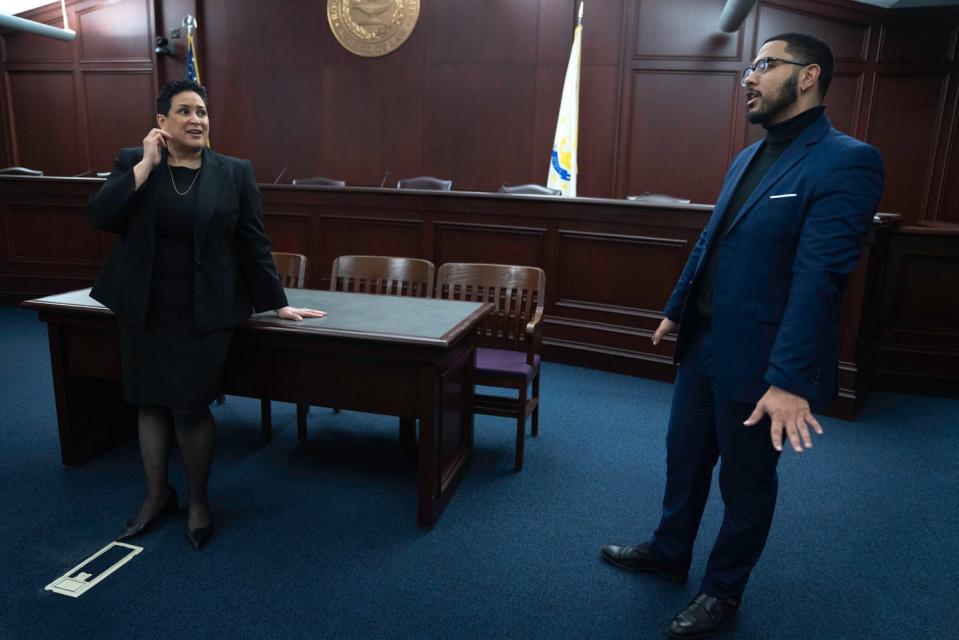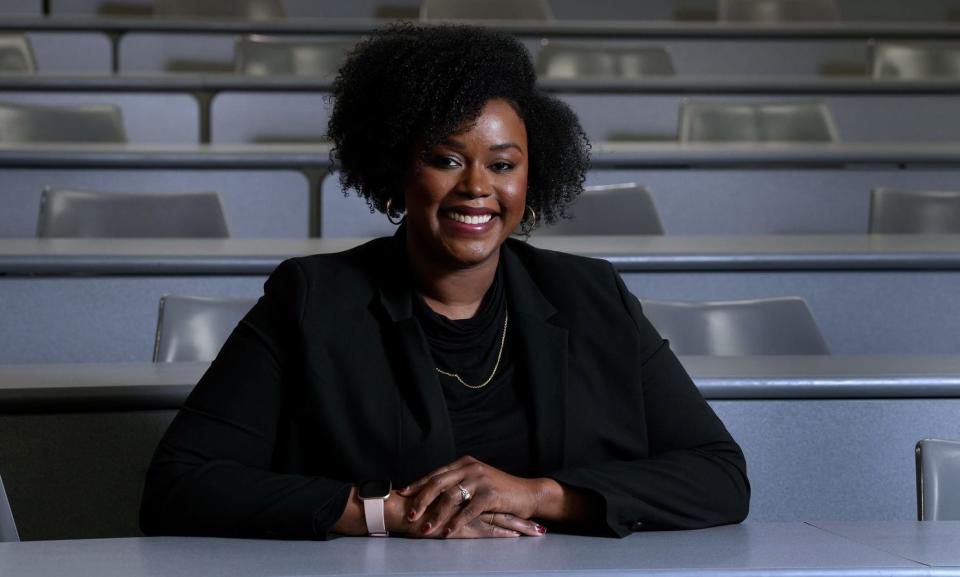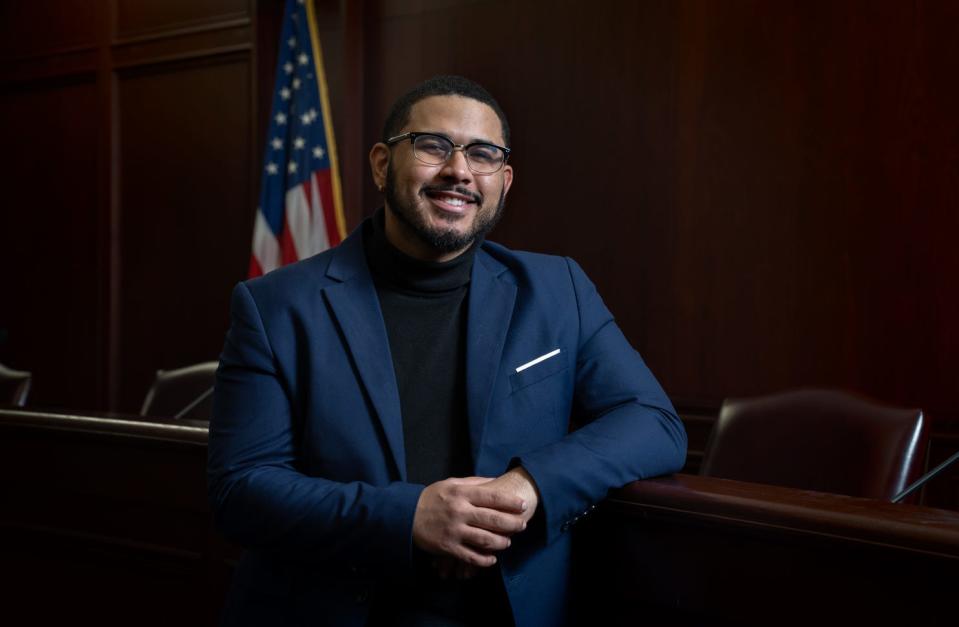RWU Law has pushed to diversify RI's legal field. This former student is the driving force.
BRISTOL – When Lorraine Lalli graduated from Roger Williams University School of Law in 2001, she was among only a handful of students of color.
But in the nearly 19 years since Lalli was hired as the law school’s first director of diversity and outreach, she has helped shepherd legions more students of color through the doors by engaging the community and encouraging high school and college students to consider a legal profession.
“Diversity just doesn’t happen naturally. You have to take steps to build it,” said Lalli, now the associate dean of student life and operations.
Today, students of color make up 28% of the first-year class at the state’s only law school, up from 9% when she began.

Fresh view of Providence revealed talents not being realized
Lalli gravitated to the law school after graduating magna cum laude from Spelman College. She returned to Providence and with new eyes saw the Mount Hope neighborhood she grew up in.
“I could see the community in a different way,” Lalli said. She noticed bright people whose talents weren’t being realized.
Roger Williams University School of Law appealed to her for its welcoming environment and focus on public-interest law, she said.
“I always felt affirmed by the community. I always felt supported,” Lalli said.

Building partnerships, lending support
After earning a law degree, Lalli practiced with Brown Rudnick LLP in Boston before returning to her alma mater to help boost its diversity and lend students, particularly students of color, the support they need to thrive in school and beyond.
For some, it is difficult to adjust to the rigors of law school and juggling 50-plus hours of homework a week, she said. For others, it may represent the first time they have experienced failure as they adjust to the analytical mindset – and bomb their exams in the process.
Over her tenure, Lalli has also launched a partnership between the Thurgood Marshall Society of Rhode Island and the Multicultural Law Students Association to cultivate mentoring relationships and create a pre-orientation program for diverse students to give them a robust start.
District Court Judge William Trezvant, the immediate past president of the state Thurgood Marshall Society, said that for more than a decade it has sponsored a diversity dinner with the law school for high school and college students, giving them a chance to interact with judges, lawyers and law students.
"They usually don't have lawyers in their families, so it's their first exposure," Trezvant said.
He credited the school for contributing to an increase in lawyers of color in Rhode Island from a mere scattering in the early 1970s to some 150 today.
"It's a work in progress, but Lorraine deserves a lot of praise," he said.
She and the administration work closely with student-led groups – including the Black, Latino, and Asian Pacific American law student associations, among others – to build a sense of community and strengthen their school performance, she said.
`The face of the law school'
She also works to keep the law school visible throughout the state by trumpeting the message that law can be used as a tool to help people and shape the community.
“It’s really about talking to students, being the face of the law school,” Lalli said.
As more diverse students enroll and then head out into the workforce, it is changing the legal community to more closely reflect the state’s demographics, she said. She points to three judges of color who earned degrees there: Superior Court Judge Christopher K. Smith, Family Court Judge Judge Elizabeth Ortiz Whited and District Court Judge Melissa Dubose, whom President Joe Biden recently nominated to the federal court bench.
“Lorraine has been a real change agent on this campus for 20 years. We’re training the lawyers and leaders of the future,” Dean Gregory W. Bowman said. “Having diversity in the classroom enriches the education.”
More diversity at the law school translates to greater social mobility for traditionally underserved populations and, hopefully, creates a ripple effect of greater equity and justice throughout the community as lawyers and judges, in turn, serve as role models in their community.
“We’re diversifying the legal community. It’s broader than just Roger Williams University,” she said.
`Stepping boldly into an honest understanding of race and the law'
Lalli also sits on the school’s Diversity and Inclusion Strategic Plan Steering Committee, which in 2021 helped the law school become one of just a handful in the country to add a required course on race and the law to its core curriculum: Race and the Foundations of American Law.
“We’re really stepping boldly into an honest understanding of race and the law,” said Lalli, who was honored by the NAACP Providence with the 2024 Rosa Parks Courageous Leaders Award for her service to the school and the greater community.
“She’s doing a great job," said Jim Vincent, former longtime president of the local NAACP. "She always talked about making the school reflective of the population. It offers multifaceted benefits having a more diverse law school.”
Lalli also serves on the boards of the Mount Hope Learning Center, One Neighborhood Builders and Inspiring Minds. She previously sat on the Rhode Island Judicial Nominating Committee and the Providence School Board.
Someone in their corner
Lalli’s outreach and support has made a difference to Ruth Dimanche, a first-year student from Boston.
“Being a Black woman, I know we are underrepresented in the field,” Dimanche said. “I feel like I have someone in my corner who wants me to do well.”

Jonte' McKenzie started at Roger Williams law shortly before the surge in the omicron COVID variant and during a racially charged period after the murder of George Floyd in Minnesota. He questioned administrators during the admission process about whether the school had resources for men of color like him and his peers.

“They made me feel at home. They made me feel seen,” said McKenzie, who serves as president of the Student Bar Association.
After graduation, McKenzie said, he will spend a year as a clerk in state Superior Court.
This article originally appeared on The Providence Journal: Lorraine Lalli works to recruit, support students of color to RWU law

